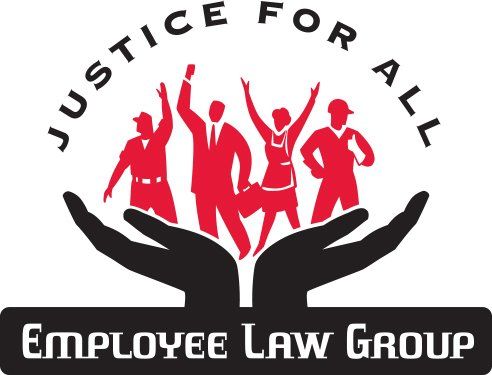- WHO WE HELP
- ABOUT
- GET STARTED
-
CASES WE TAKE
- UNPAID WAGES
- CLASS ACTION SUITS
- FAMILY & MEDICAL LEAVE
- PREGNANCY DISABILITY LEAVE
- HARASSMENT
- NEGOTIATION OF SEVERANCE
- EMPLOYMENT CONTRACT NEGOTIATION
- WORKPLACE CLOSURES
- DEFAMATION OF CHARACTER
- BAD REFERENCES
- EXPENSE REIMBURSEMENT
- ILLEGAL DEDUCTIONS FROM WAGES
- MINIMUM WAGE VIOLATIONS
- UNPAID OVERTIME
- UNPAID COMMISSIONS
- WRONGFUL TERMINATION
- SEXUAL HARASSMENT
- LOS ANGELES EMPLOYMENT LAWYER
- LOS ANGELES DISCRIMINATION LAWYER
- WHISTLEBLOWER RETALIATION
- FAQs
- BLOG
- CONTACT
Speaking Up Safely: Tips and Advice for Addressing Workplace Sexual Harassment
Do you think you might have experienced workplace sexual harassment in California? If so, you’re not alone. It can be difficult to know what to do in this situation. Here are some tips for addressing the issue safely and how an employment lawyer can help in many cases.
Sexual harassment is when someone at work directs unwelcome, sexual advances towards you. In many cases, this is a boss or manager, but it could also be:
• Owners of the company
• Coworkers
• People who report to you
• Clients or customers
• Vendors
• Other work associates
You might not even work for the company yet. Some sexual harassment incidents occur during the hiring process.
Sexual harassment can be between people of any gender. Men can harass women and vice versa. The harassment can also be directed at one gender from someone of the same gender. It doesn’t have to be based on sexual desire, as in flirting; sexual harassment can take the form of bullying or making someone uncomfortable, including harassing them about their gender identity or pregnancy.
Harassment can be physical, written, spoken, or any combination of those three things.
In the eyes of the law, sexual harassment is typically broken down into two main types: quid pro quo sexual harassment and sexual harassment that creates a hostile work environment.
With quid pro quo sexual harassment, someone — usually a person in power — demands sexual favors in return for workplace benefit. For example, a boss might tell someone who works for them that they’ll get a promotion if they go out on a date.
We’re not talking about two people who give mutual consent to see each other outside the office romantically. Rather, it’s a case where it was clear that the benefit in question was contingent on the terms of the harassment, and harm was caused to the employee by the harassing party in the workplace.
Does a harasser at work need to follow through on their threats in order for it to be considered quid pro quo harassment? Not necessarily. Sometimes just the implication that you might be fired or receive bad working hours can create a hostile work environment.
A boss, customer, or coworker who makes for a hostile work environment can be a tough case to prove. Harassment can’t just be isolated or trivial — it has to make the workplace toxic by pervasive and/or severe conduct. This could be constant remarks or unwelcome touching that would make any reasonable person want to transfer or quit. It might be a scenario where the presence of pornography makes a worker uncomfortable, and it’s so omnipresent that it’s unavoidable.
Unfortunately, workplace sexual harassment is common, even though it’s against the law and it costs many businesses good employees. If you believe you’ve been a victim or target of sexual harassment, it might help you to consider these statistics:
• More than a third of all women and 14 percent of men have reported sexual harassment at work as of 2019.
• In some industries, nearly 90 percent of women say they have experienced sexual harassment.
• More than half of women say they have received unwanted sexual attention or been the recipient of similar behaviors that border on the legal definition of sexual harassment.
• The US Equal Opportunity Employment Commission (EEOC) states that between 2018 and 2021, they received 27,291 allegations of workplace sexual harassment. Just over 78 percent of those allegations came from women.
Sexual harassment isn’t a minor concern or something that can be laughed off. For some people, it results in serious psychological damage, like post-traumatic stress disorder (PTSD). Other people suffer from ongoing physical repercussions, like gastric problems, difficulty sleeping, headaches, and weight issues.
Toxic workplaces can affect all employees, not just the ones who have been targeted by sexual harassment. If the problem is widespread, it can reduce productivity and employee retention and recruitment.
Your first concern with sexual harassment at work should be for your own safety. Never hesitate to call 911 if you are in a situation that threatens your life or health. Report any physical attacks to your local police, and see a healthcare provider if necessary. Crisis hotlines like 800-656-HOPE (4673) are there if you need advice or someone to talk to.
For other incidents of sexual harassment, you will need to use your judgment and proceed accordingly. Is it possible that the other party isn’t aware their advances or comments are actually sexual harassment? Sometimes telling them that can stop the behavior. You might also remind your employer that if there are five or more employees, the state of California requires the business to conduct regular sexual harassment training to make people aware of what is considered harassment.
In most cases — especially if you ask someone to stop sexually harassing you and they don’t — you should report the harassment to your employer through the channels available to you, like going to a manager or HR. In many instances, the company is strictly liable if a boss is harassing someone who works beneath them and they know about the situation yet do nothing. Sometimes this risk is enough to get the company to take action against the harasser.
You’ll want to provide as much documentation as possible, whether that’s hanging on to text messages and emails or asking coworkers to bear witness to your harassment. Some sexual harassment cases are challenging to prove, so the more you can document intent and damage, the better.
If your boss or company refuses to address the harassment, you have the right to file a complaint with either the
California Civil Rights Department (CRD) or the EEOC. If you file with one agency, your complaint will automatically be cross-filed with the other. Typically an investigation is then launched, which can eventually result in mediation or a lawsuit.
If you get to the point where you are documenting evidence of workplace sexual harassment or filing an official complaint, you may also wish to enlist the help of an employment lawyer. They can help in many areas, such as:
• Advising you on whether you have a case of sexual harassment
• Educating you about California laws regarding harassment so you know your rights
• Making suggestions for how to document your case
• Helping you fill out complaint forms for the CRD or EEOC
• Assisting you with getting a right-to-sue notice before an official investigation is completed
• Filing a lawsuit to pursue the matter in court
As you may have figured by reading the material above, proving sexual harassment can sometimes be tricky, so you want to work with someone who is experienced in this arena and knows California law.
Also, there can be cases where sexual harassment overlaps with other workplace violations, including whistleblower retaliation, unpaid wages, wrongful termination, or discrimination. You may be entitled to:
• A promotion you were denied
• Return to your job if you were fired
• Back pay, including unpaid commissions or bonuses
• Restoration of your reputation or references
• Money for pain, suffering, and mental anguish
• Court costs, attorney’s fees, and related expenses
Employee Law Group brings you decades of experience handling sexual harassment cases, and we have the resources to help you while you try to get back to normal life after an incident of harassment. We can represent you in court or help you negotiate a settlement based on your unique situation.
It costs nothing to discuss your workplace sexual harassment case, as your first consultation with Employee Law Group is free. Call us at 310-606-0065 or reach out online today to set up an appointment.









EMPLOYEE LAW GROUP | JUSTICE FOR ALL
21250 Hawthorne Blvd. Suite 500, Torrance CA, 90503
500 Capitol Mall, Suite 2350, Sacramento, CA, 95814

